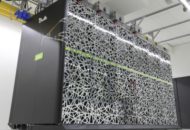There is no doubt that the Internet has generated a revolution in the computer industry, but not a painless one. From its humble origins as a global network to enable academics to share programs and data it has become focal to the way of life in the developed world. The net impact on the technology industry has been enormous and in many ways damaging.
The major point of impact was on the communications industry. The PC was already entrenched and while the Internet has encouraged sales and kept the PC makers afloat, it has caused some problems for the software industry. At the beginning of the expansion into the high volume domestic sector the communication industry must have thought that every day was Christmas. On the equipment side the router vendors, particularly Cisco, flourished. The telecommunication carriers saw increased demand but in the longer term they failed to cope with the attendant competition. Nevertheless the huge increase in demand for "bandwidth" meant big orders for the suppliers of core communication equipment and it was boom time for Alcatel, Newbridge, Marconi, et al, all of which are now in real trouble after the market hit saturation. These problems were amplified by the huge boom in mobile telephony, contemporary with the Internet boom, and equally doomed to over supply. At least the investment in communication infrastructures will surely prove important in the long run, but there is no doubt that the focus on mobile telephony directed resources away from improvements in normal connections, particularly to domestic consumers. We were promised that by 2000 most households would have ADSL (or similar) connections and as a result we would have at least a 1 megabit/sec "Ethernet" connection and a telephone at a cost similar to the conventional phone services. It hasn’t become the norm and now won’t for some time to come due to the financial problems created by mobile phone investments.
But how does this affect the IT industry? Unfortunately it does in a worrying number of ways. Top of the list comes the impact on the financial state of IT suppliers, a sorry state of affairs of which we are all aware. This hurts us all because it indirectly effects development, support and cost of most systems and services.
The second big impact on IT is the advent of e-commerce. Courtesy of the Internet domestic PCs now need to be included in designs for data processing systems. But these applications are different, particularly the user interfacing, to more traditional data processing systems. As a result developers have been hit on three fronts. On one hand, contrary to uninformed opinion, the current applications are far more important than e-commerce applications, and they need ongoing attention. Then there is the need to add expertise and tools to develop and test the new generation applications; this involves a significant learning curve as well as expense. Unfortunately, as a result, there has been a lot of misguided advice flying around. But while there will be some entirely new systems, particularly in business-to-business applications, the online e-commerce applications usually require a new front-end to be integrated with existing systems. This has put a lot of emphasis on just how well we know our existing systems, but it has also created the need for new middleware, mainly either Microsoft’s .NET or one of the Java based application servers.
If we stand back and look at it subjectively, it is clear that the expectations have been far too high. Too little attention has been given to design, testing, performance, etc. The IT industry should be experienced enough by now to have resisted external pressures, but the inevitable has happened and far too many "instant experts" have got in the way. If anyone doubts this statement, take a look at the average Web page. The designs are a disgrace on 95% of them. There is very little attention given to the needs of normal users. Most have all too obviously been thrown together by "whiz-kids", who only know how to cater for other similarly minded people, who are not the target user base in most cases.
What lessons can we learn then from the first exciting but problematic phase of e-commerce? Simplicity, not complexity is a virtue and user interfaces must be simplified. Designing a system is just as important, possibly more so, than it has always been. And yet we have a poor track record when it comes to design. Our investment in design a nd testing tools is far too low still. Perhaps the needs of e-commerce are just the catalyst needed to move IT forward in these crucial areas.
Martin Healey, pioneer development Intel-based computers en c/s-architecture. Director of a number of IT specialist companies and an Emeritus Professor of the University of Wales.





